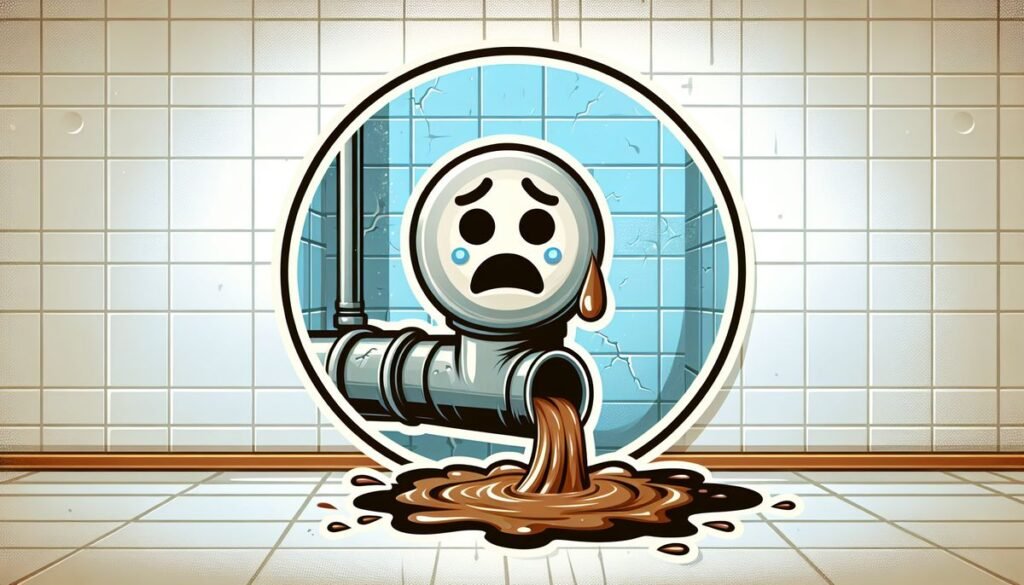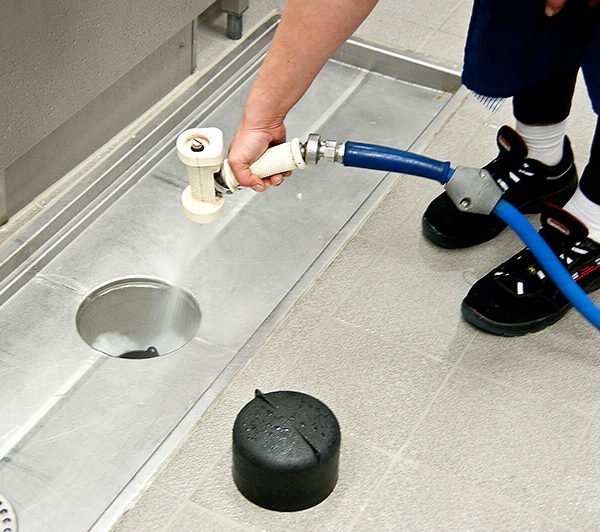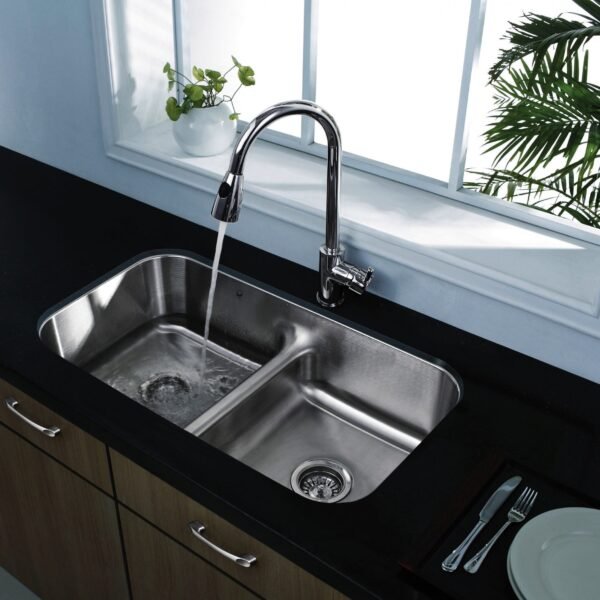When it comes to home maintenance, certain issues demand immediate attention to prevent costly damage and inconvenience. Plumbing problems, in particular, can escalate quickly, which is why recognizing the warning signs that you need a clogged drain plumber is crucial. This article outlines five clear indicators that it’s time to call in a professional plumber without delay.
Key Takeaways
- A sudden spike in your water bill can be a symptom of a hidden leak or clogged pipes requiring urgent plumbing services.
- Visible leaks are an immediate cause for concern and should be addressed by a plumber to avoid water damage and waste.
- Rusty water indicates pipe corrosion or sediment build-up, which can lead to clogs and requires professional inspection.
- If you’re experiencing reduced water pressure throughout your home, it may be due to a clog or blockage in your main water line.
- A blocked drain or sewer is a serious health and safety issue that needs prompt attention from a skilled plumber.
1. Sudden Increase in Water Bill
A sudden increase in your water bill can be a startling indicator that something is amiss with your plumbing. If you haven’t changed your water usage habits but notice your bill creeping up, it’s time to investigate.
- Mystery spike: A sudden, unexplained rise in your bill suggests a possible hidden leak.
- Hard water issues: Slow leaks from hard water can go unnoticed, yet significantly impact your bill.
- Immediate action: Contacting a plumber can help you find and fix leaks before they escalate into more costly problems.
Addressing a water bill surge promptly can save you from the headache of extensive water damage and even higher future bills. A professional plumber has the tools and expertise to diagnose and resolve the issue efficiently.
2. Obvious Leaks
When it comes to plumbing issues, obvious leaks should never be ignored. These leaks can manifest in various forms, such as water stains on ceilings, puddles under pipes, or dripping faucets. Each of these signs indicates a potential clogged drain or more serious plumbing problem that requires immediate attention.
Leaks can lead to more than just wasted water; they can cause extensive damage to your home’s structure and even lead to mold growth if not addressed promptly.
It’s important to be aware of less visible signs of leaks as well. Unexplained sounds of running water or a musty odor can also suggest hidden leaks. Here’s a quick checklist to help you identify leak-related issues:
- Water stains on ceilings or walls
- Puddles or dampness under sinks or around toilets
- Dripping sounds or visible faucet leaks
- Musty odors or signs of mold
- Unusual sounds from pipes, such as gurgling
If you encounter any of these issues, it’s crucial to contact a clogged drain plumber as soon as possible to prevent further damage and costly repairs.
3. Rusty Water
Encountering rusty water when you turn on the tap is more than just an aesthetic issue; it’s a sign that your plumbing may be deteriorating. This discoloration often indicates that your pipes are corroding, which can lead to a series of plumbing problems if not addressed promptly.
If you notice a rusty tint in your water, it’s essential to investigate the cause. While it could be a sign of general pipe corrosion, it might also be due to specific issues like Grease in secondary line. This can exacerbate the problem by accelerating the corrosion process.
Here are some reasons there may be rust in your water:
- Corroded pipes releasing iron into the water supply
- Sediment build-up in your water heater
- Grease and other substances in secondary lines
A local emergency plumber can help identify the source of the problem and suggest the best course of action. Whether it’s pipe repair or replacement, taking care of this issue early can prevent more severe damage to your plumbing system and ensure that your water is safe for use.
4. Reduced Water Pressure
Experiencing reduced water pressure can be more than just an annoyance; it’s often a sign of underlying plumbing issues. Imagine stepping into the shower and being met with a weak dribble instead of a refreshing spray. This frustrating scenario is commonly caused by limescale buildup in your pipes, which narrows their internal diameter and restricts water flow.
Several factors can contribute to low water pressure in your home. Corroded pipes, a malfunctioning pressure regulator, or even the location of your home in relation to the water source can play a role. If your faucets are dribbling rather than flowing, or your shower’s force has diminished, it’s time to investigate.
Addressing low water pressure is crucial not only for your comfort but also to prevent potential damage to your plumbing system. Ignoring the issue can lead to more significant problems down the line.
Here are common causes of low water pressure:
- Mineral buildup in pipes
- Malfunctioning pressure regulator
- Hidden leaks
- The effect of gravity on water distribution
If you’re facing persistent low water pressure, it’s advisable to consult with a professional plumber who can accurately diagnose and resolve the issue.
5. Blocked Drain or Sewer
A blocked drain or sewer can be a homeowner’s nightmare, often leading to a series of unpleasant and costly problems. If your floor drain is backing up or you notice your sink backing up and toilet backing up, it’s a clear indication that you need professional help. These issues can escalate quickly, causing significant damage to your property.
Blockages can be caused by a variety of factors, but one of the most severe is roots in the sewer main. This problem is not only difficult to detect without professional equipment but also challenging to resolve without the right expertise.
It’s essential to recognize the signs that your drains might be clogged before the situation worsens. Here are some common symptoms to watch out for:
- Slow draining sinks or bathtubs
- Gurgling sounds coming from your drains
- Unpleasant odors emanating from the drain
- Water pooling around your feet in the shower
If you’re experiencing any of these issues, it’s time to call in a clogged drain plumber to assess and address the problem.
Conclusion
In conclusion, ignoring plumbing issues can lead to significant damage and expensive repairs down the line. When you notice any of the warning signs mentioned above, don’t hesitate to contact a licensed plumber immediately. Addressing plumbing problems promptly not only preserves the integrity of your home but also ensures the safety and comfort of you and your family. Remember, when it comes to plumbing issues, it’s always better to be safe than sorry.
Frequently Asked Questions
What can cause a sudden increase in my water bill?
A sudden increase in your water bill can be caused by hidden leaks, running toilets, dripping faucets, or other plumbing issues that allow water to escape the system without your knowledge.
How can I tell if I have an obvious leak?
Obvious leaks are typically indicated by visible water pooling, wet spots on walls, ceilings, or floors, the sound of dripping water, or a musty smell indicating the presence of mold or mildew.
Why is my water rusty, and what should I do about it?
Rusty water can be a sign of corroded pipes or a failing water heater. It’s important to call a plumber to assess the situation and replace any damaged components.
What might cause reduced water pressure in my home?
Reduced water pressure can be caused by clogged pipes, a malfunctioning pressure regulator, or issues with the municipal water supply. A plumber can help diagnose and fix the problem.
What are the signs of a blocked drain or sewer?
Signs of a blocked drain or sewer include slow draining sinks, gurgling noises from toilets, unpleasant odors, and water backing up in showers or basins.
Should I attempt to fix plumbing issues myself?
While some minor issues can be DIY projects, it’s generally recommended to call a professional plumber for most plumbing problems to avoid worsening the situation or causing more damage.
How quickly should I react to plumbing warning signs?
You should react to plumbing warning signs as soon as possible. Delaying can lead to more extensive damage, higher repair costs, and potential health hazards.
Can regular maintenance prevent plumbing emergencies?
Yes, regular maintenance by a professional plumber can help prevent emergencies by identifying and fixing minor issues before they escalate into major problems.




